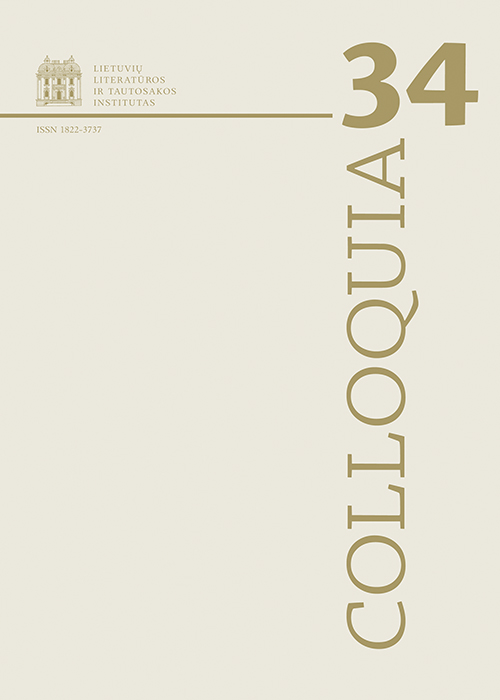Sigitas Geda’s Pėdos – Explorations in Idiolectic Description
Abstract
The author of this article has given himself the task of applying the linguistic concept of idiolect to the description of a poetic text’s ideolectic, or singular, nature. To do this he has chosen a text of the second half of the twentieth century, Sigitas Geda’s (1943—2008) first book of poetry, Pėdos (Footprints) (1966). Discussing the descriptive possibilities of semiotic singularity, the author problematizes the analytical concept of expression as spoken utterance. He argues that the paradigm of speech usage limits understanding of the specificity of the poetic text and can be overcome by recognizing not the unusual usage of language, but the textualized significatory intentions within poetry. Moreover, because the analysis draws largely upon the semiotic perspective developed by the school of Algirdas Julius Greimas, it critiques the idea of textual content that has become entrenched within that tradition. Instead of considering the text as a territory generating selfevident, anonymous meanings, the author focuses his analysis on the acts of internal generation and interpretation that are typical of poetic texts.
Analyzing the texts that make up Geda’s book, Jevsejevas first of all draws on Roland Barthes’ concept of style, shifting his attention from the author’s person to the foundational culture of the text. In this way he is able to identify fantastical landscape as a category of phenomenal expression in Pėdos. The author demonstrates that, on this basis, the texts in the collection generate signs that have object-like qualities and belie fragments of cultural memory. The author of the article sees this kind of textual creation as pathos and as a playful valorization of tradition which makes it possible to lay out fragments of memory for the purposes of an understanding based on epic impression. He claims that it is fantasy that makes it possible to invest visible elements with meanings provided by cultural memory and, from that, to create a relatively closed circle of meaning.
Downloads
Most read articles in this journal
- Paulius Jevsejevas, Poetic Discourse in the Early Works of Sigitas Geda , Colloquia: Vol. 45 (2020)
- Paulius Jevsejevas, For There to Be Meaning, There Must Be Fiction , Colloquia: Vol. 39 (2017)




